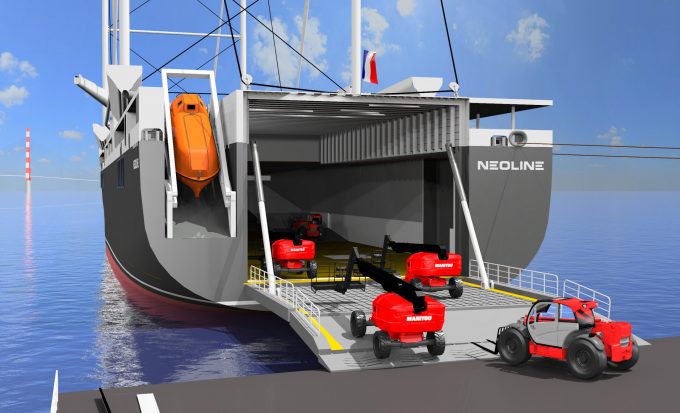Transatlantic turbulence as carriers' focus switches to 'what we can control'
In this new world of uncertainty, it will be agility that wins in air – ...

A new age of sail tacked another step closer this week when French industrial machinery manufacturer Manitou announced it would use a Neoline wind-powered ro-ro vessel.
Manitou has agreed to “transport all aerial work platforms and telehandlers manufactured by Manitou Group in France via a primarily wind-powered cargo ship heading for the North American market”.
Neoline is planning a fortnightly transatlantic service between Nantes, Baltimore, Halifax and and the French North Atlantic outpost of St-Pierre & Miquelon.
Manitou exports around 1,000 machines to ...
Keep our news independent, by supporting The Loadstar
Container spot rates diverge: to Europe still falling, but firmer to the US
Volume surge and an early peak season? 'Don't celebrate too soon,' warning
Hapag-Lloyd won't take bookings if port congestion leaves cargo stranded
Ecommerce likely the front-runner in resurge of transpacific trade after deal
China-US trade tariff pause could drive a rebound for transpacific rates
Service chaos from trade ban with India a problem for Pakistan shippers
Airfreight rates ex-China 'loss-making', but hopes of a trade deal stay high

Comment on this article